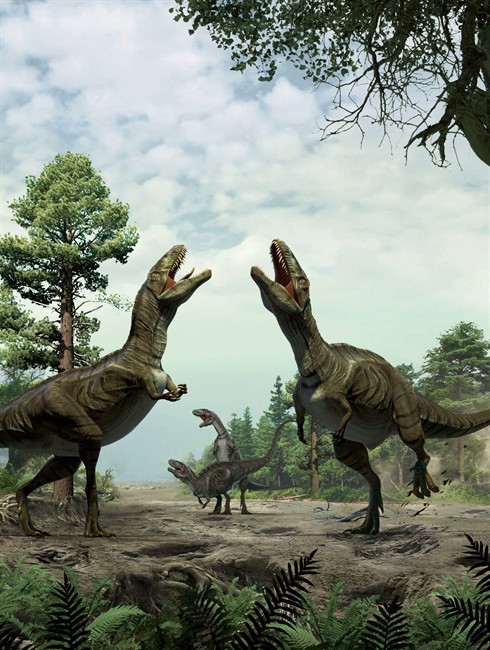While most people blame an asteroid for killing off the dinosaurs, new evidence supports the theory that a powerful volcanic eruption may have started the mass extinction event.

READ MORE: Asteroid that killed dinosaurs almost wiped out mammals
In 1978, two geophysicists discovered a crater off the coast of the Yucatan Peninsula around the same time a scientific paper was released suggesting that a cataclysmic event was caused when a large asteroid slammed into Earth around 65 million years ago. Many scientists concluded that, after the collision, a massive cloud of super-heated dust and debris covered the globe, creating conditions that eventually wiped out the dinosaurs as they faced global cooling and the poisoning of food sources.
But not everyone was convinced. Some scientists believed that there was evidence to support a powerful volcanic eruption near Mumbai, India.
That theory has been hotly debated. Now a new study that reconstructed ocean temperatures in the Antarctic, supports the theory that both volcanism and climate change caused by the asteroid impact were responsible for causing the extinction of about 70 per cent of all species on Earth, including the dinosaurs.
READ MORE: Are we in the midst of a mass extinction?
Using new technology, the researchers studied 29 well-preserved mollusks that lived roughly 66 million years ago, found on Antarctica’s Seymour Island. Ocean temperatures in the region averaged about 7 C at that time, but two abrupt warming spikes were discovered. The first is believed to have been caused by the volcanic eruption in India; the second after the asteroid slammed into Earth.
“We find that the end-Cretaceous mass extinction was caused by a combination of the volcanism and meteorite impact, delivering a theoretical ‘one-two punch,'” said Petersen, lead author of the study published on July 5 in the journal Nature Communications.
The temperatures in the Antarctic rose by about 8 C during the first warming event, likely as carbon dioxide became tapped in the atmosphere. The second, which was slightly smaller, occurred about 150,000 years later, around the time of impact.
Researchers believe that the warming likely created stress in the ecosystem, leaving them more vulnerable after the asteroid collision, thus causing the gradual extinction of the dinosaurs and most life on Earth.
WATCH: Tracking the asteroid that took out the dinosaurs



Comments